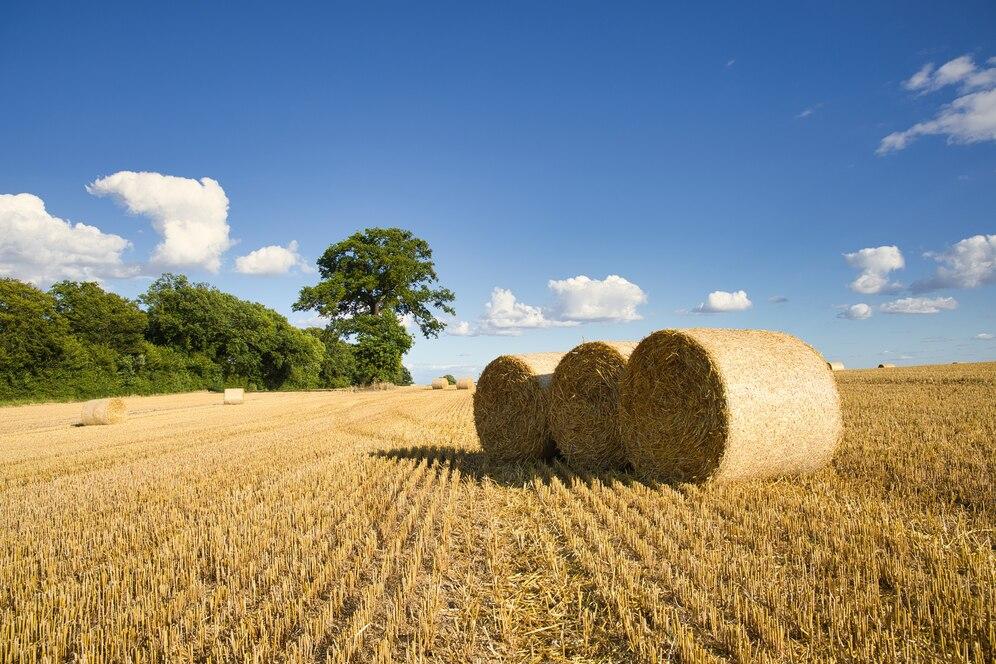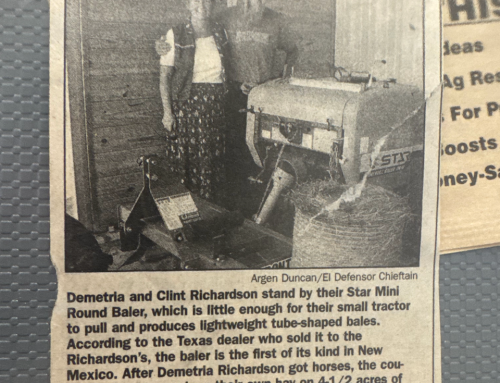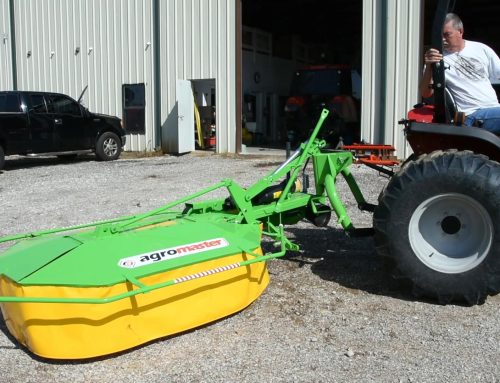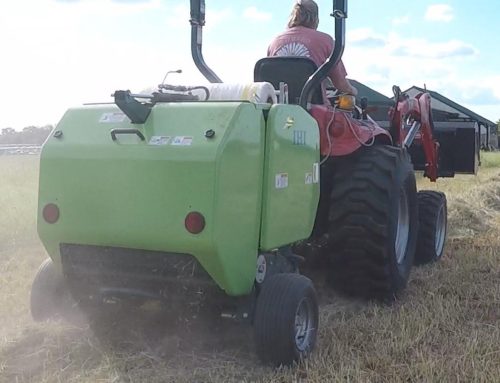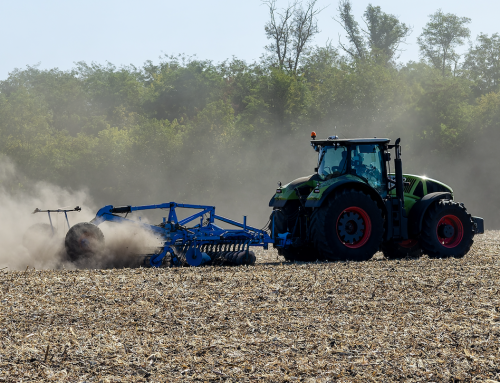When it comes to managing a farm, choosing the right equipment is key to making your work easier and more efficient. If you’re a farmer with a smaller farm or a smaller-scale hay operation, you may want to consider investing in a mini round hay baler.These compact machines are designed to make the baling process simpler and more convenient, especially if you’re working with limited space or equipment.
But with so many options available, how do you choose the best mini round hay baler for your needs? Let’s walk through the essentials that can help you make the right decision.
What Are Mini Round Hay Balers?
Mini round hay balers are small, compact versions of traditional round hay balers. They are designed to make round hay bales that are typically smaller in size, making them perfect for smaller farms, hobby farms, or even large gardens. These machines are easier to handle than their larger counterparts, and they are an excellent choice for farmers who work with smaller tractors or limited space.
If you’re considering buying a mini round hay baler, it’s important to understand what makes these machines unique. Unlike traditional balers that require larger tractors, mini round hay balers can often be used with compact tractors. This makes them versatile and ideal for smaller operations that don’t need massive equipment to get the job done.
Why Choose a Mini Round Hay Baler?
There are several benefits to choosing a mini round hay baler for your farm. First and foremost, mini round hay balers are highly efficient. They are designed to create smaller bales, which makes handling easier. Smaller bales are also great if you are storing them in smaller spaces or if you plan to sell hay in smaller quantities.
Additionally, these balers are much easier to maneuver, especially if you have a compact tractor. This makes the whole process of baling hay much quicker and less stressful. Plus, mini round hay balers are usually lighter in weight compared to large round balers, so they tend to be more fuel-efficient and cost-effective for smaller-scale operations.
Factors to Consider When Choosing a Mini Round Hay Baler
Before purchasing a mini round hay baler, there are several factors you should consider to ensure that you choose the best one for your specific needs.
1. Size of the Bales
The size of the bales produced by the mini round hay baler is one of the most important things to think about. Mini round hay balers typically make smaller bales than larger models, and the size of these bales will depend on the model you choose. If you plan on selling hay or feeding it to livestock, you’ll want to make sure the bales are the right size for your needs.
Mini round hay balers are great for smaller, more manageable bales that can easily be stored or moved around. They usually make bales that are 30 to 50 inches in diameter. The smaller the bales, the easier they are to handle, but you may need to create more bales to achieve the same amount of hay compared to larger balers.
2. Compatibility with Your Tractor
Not all mini round hay balers will work with every tractor. If you have a smaller tractor, it’s important to look for mini round hay balers that are compatible with compact tractors. These balers are designed to work with compact tractors, which are smaller and lighter than full-sized tractors.
By using compact hay balers for compact tractors, you ensure that you get the best performance without overworking your tractor. Make sure that the mini round hay baler you choose is a good match for the horsepower and size of your tractor. Some balers may require more horsepower, while others are designed to work with lower-powered compact tractors.
3. Bale Density and Quality
Bale density refers to how tightly the hay is packed into the bale. A higher density means that the hay is more tightly packed, which is usually preferable because it makes the bale more durable and easier to store. However, you need to balance bale density with ease of handling. If the bale is too dense, it might be difficult to lift or move.
When looking for a mini round hay baler, check if it offers adjustable bale density settings. This will allow you to control the tightness of the bales, ensuring that you get the quality of hay bales that you desire. Also, make sure the baler produces consistent, uniform bales that are of good quality, especially if you plan to sell them.
4. Durability and Build Quality
You’ll want a mini round hay baler that is durable and well-built, as baling hay can be a tough job. A high-quality baler will be made from strong materials that can withstand wear and tear. Pay attention to the materials used in the construction of the baler, as this will directly impact its lifespan.
Look for balers that are made from high-quality steel or other durable metals that are designed to last through many seasons of use. If possible, check customer reviews and testimonials to see how other farmers have rated the durability and build quality of different mini round hay balers.
5. Maintenance and Ease of Use
Like all machinery, mini round hay balers require regular maintenance to keep them running smoothly. When choosing a baler, consider how easy it will be to perform maintenance tasks like cleaning, oiling, and replacing parts. A baler that is easy to maintain will save you time and money in the long run.
Some mini round hay balers come with easy-to-follow instructions for maintenance and include features that make the baling process easier for you. Look for features like adjustable tension controls, easy-to-use feed systems, and quick-change parts to make the process of keeping your baler in good shape as simple as possible.
6. Cost
Finally, consider your budget when choosing a mini round hay baler. These balers are available at a wide range of price points, so it’s important to choose one that fits within your budget. While it can be tempting to go for the cheapest option, investing in a slightly more expensive baler may pay off in terms of durability and performance in the long run.
If you’re working with a compact tractor and need compact hay balers for compact tractors, expect to pay a little more for the added convenience of using a smaller, more efficient machine. However, this additional cost could be well worth it when you consider the time and energy you save by using the right equipment.
Shop for the best deals today!
Choosing the best mini round hay baler for your farm can make a world of difference when it comes to productivity, efficiency, and ease of use. Whether you’re using a compact tractor or need compact hay balers for compact tractors, it’s important to consider factors like bale size, compatibility with your tractor, and the quality of the machine itself. By carefully considering these factors and choosing a baler from a reputable brand, you’ll be well on your way to making the right choice for your hay operation. Happy baling!
FAQs (Frequently Asked Questions)
1. Can I use a mini round hay baler with a compact tractor?
Yes, mini round hay balers are specifically designed to work with compact tractors. They are lightweight and compatible with smaller tractors, providing an efficient baling solution for small-scale farms.
2. What size bales do mini round hay balers create?
Mini round hay balers typically create bales that are between 30 to 50 inches in diameter. These bales are smaller and easier to handle compared to traditional large round bales, making them ideal for small farms or storage spaces.
3. How do I maintain a mini round hay baler?
Maintaining a mini round hay baler involves regular tasks like cleaning, lubricating moving parts, and inspecting for any wear or damage. Be sure to follow the manufacturer’s instructions for maintenance to ensure long-lasting performance.
4. Are mini round hay balers expensive?
The cost of a mini round hay baler varies depending on the brand, features, and quality. While they may cost more than manual baling methods, they offer greater efficiency and ease of use, making them a worthwhile investment for small-scale farmers.
5. How long do mini round hay balers last?
With proper maintenance, a mini round hay baler can last for many years. The durability depends on the brand and how frequently the baler is used, but with regular care and upkeep, they are designed to be long-lasting.

